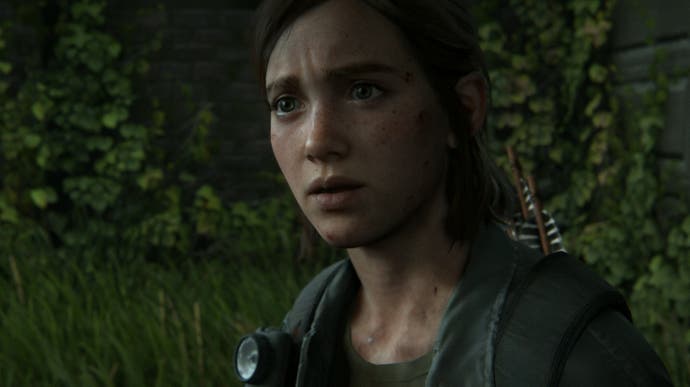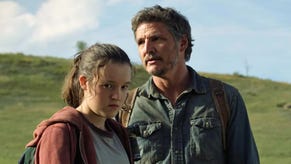On fridging, revenge and Joel's return: a short chat with The Last of Us Part 2's writer
"We hope people will have the trust in us to honour our characters."
The Last of Us Part 2 draws closer, and some of its mysteries have begun to unravel. Perhaps the biggest revelation of this week's new trailer was the return of the original's lead Joel - a character many had presumed would be killed off and set Ellie on the path of revenge she's known to be taking in the sequel. Of course, not everything is as it seems in Naughty Dog's trailer, and it's impossible to draw conclusions when seeing snippets presented out of context - but the implication that Ellie's love interest Dina would be the motivation for revenge marked a sour note for some.
At the preview event in Hollywood, I had a chat with writer Halley Gross - previously a writer on television's Westworld, and now working in tandem with Neil Druckmann on The Last of Us Part 2 - to talk about how Naughty Dog is following up one of the most beloved games of the past decade.
A lot of people are surprised that Joel is there.
Halley Gross: We like to keep people on their toes!
So he's very much alive then?
Halley Gross: The game is very much about Joel and Ellie's relationship, and the evolution of their relationship.
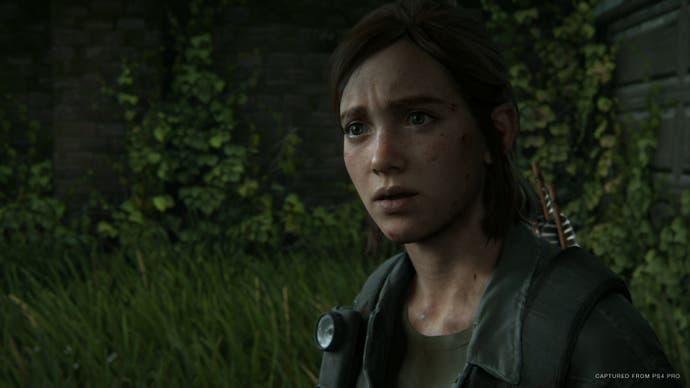
Some people are still convincing themselves that he's a hallucination. We've seen how Ellie's changed since the last game - how has Joel changed?
Halley Gross: That took place four years before this one, and they've really settled into this community, he's gotten closer to his brother Tommy - who you see Ellie is looking for in the demo. It's very much about what it is to have a relationship. In the first game, Ellie's 14, he becomes a dad, he's very much in control of the situation, he knows what's right and what's best for her. A lot of the story is what it is to have a relationship with a kid who's growing up, who's becoming independent, who wants to make her own choices and makes those choices whether you like it or not. He's also growing up, and also maturing.
And how do you go about addressing the ending of the last game? It was such an effective full stop, and it left so many questions unanswered - which was part of its appeal. Now Joel is back, I guess you're going to have to answer those questions.
Halley Gross: I'd love to get into that, but I can only really talk about what we saw today. I will say their relationship is strained, and will grow and change as the game progresses.
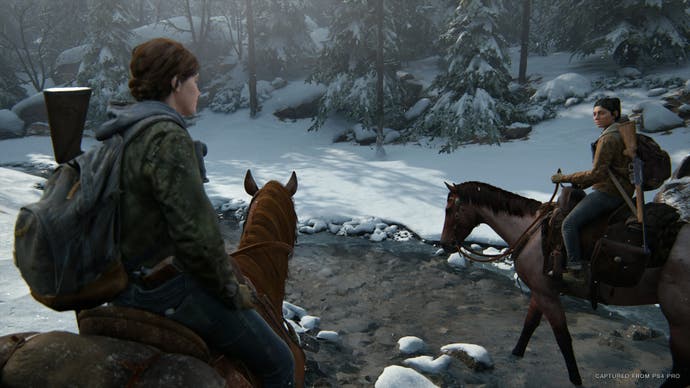
We've seen another relationship which is very important to Ellie with Dina. Some of the only negative feedback from this week's trailer was some concern Dina is being fridged - I think some people assumed that Ellie would be avenging Joel's death, whereas it's heavily implied it's Dina's.
Halley Gross: We're not talking about major story points, but what I will say... One of the tropes of fridging is that a character is created in order to further the main character's storyline. We've spent an enormous amount of time on Ellie and Dina, making them incredibly multi-faceted characters and really delving into their relationship. So the scene you saw where they smooched - we shot that twice. Because games are a living breathing thing, we spend a lot of time building this whole arc for Ellie and Dina - and when we shot that scene, we realised the one we'd originally written, it wasn't being as truthful to those characters that we wanted it to be. So we came back and reshot.
I'm really excited about Ellie and Dina's relationship, and I'm really excited for people to see Ellie and Dina's relationship.
Did you pre-empt the reaction there'd be to this trailer? It's clearly something you've thought about.
Halley Gross: What we hope is that people have faith in us as a company to create dimensional characters and honour all those characters. We've always been a studio that focuses on diversity, the game is focussed on a female gay character. We hope that people will have the trust in us to honour our characters, no matter their sexual orientation, that we'll treat them all with respect.
That's all good, and I think you've earned that trust. Having come from television it's your first time working on a game - how's that process been for you?
Halley Gross: Oh man, it's such a learning curve. In Hollywood, most of the time you're working in a medium where you write everything by yourself, sometimes with other writers, but you figure out what it is and then you give it to these other departments. With Naughty Dog - I can't talk to other studios - Neil and I created an outline. Then we stress-tested it against the studio, and then you start working on it out of order, you start working with layout designers, with animators - everyone's so smart, and as much as we have a diverse cast we have a diverse team - and everyone comes at it with their own great ideas and then the story evolves and changes.
It's like a living organism. The ending that Neil and I had at the beginning of the game, it's completely different to the end that we have now - and that didn't change until maybe a year ago. What I love about the process is it's constantly evolving.
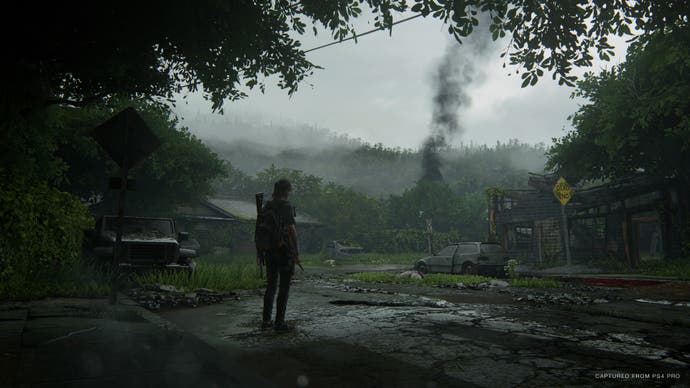
What was the brief when you started? What did you want to convey?
Halley Gross: When I started Neil had a tentpole pitch of what he wanted it to be. We sat down at lunch and he was like this is where it starts, something happens in the middle and this is where it ends. What I brought to the table - obviously I have a female perspective, but more than that it's talking about trauma, about people picking themselves back up, and digging into these female characters, and these male characters, and do as honest a service as I can to the story that Neil had.
Neil said in his opening comments about how the game's exploring issues of anger, and of rage. We live in quite angry times at the moment - is the story a reflection of that?
Halley Gross: I think where we start is focussing on character, and how are we honest to Ellie and Joel and where they were after the first game. That being said, I think this is a time when we want to hear stories about resilience. It's wonderful that we're seeing more female protagonists, and I think it's great, but what we want to see isn't these impervious strong woman who are powerful. That's impossible to relate to. We want to see people who get knocked down, but they get knocked down and find their way back and keep pushing. So much of the narrative we're focussing on is how you figure out how to pick yourself up but how much has the world changed - and why do you do it. Is it worth it?
This article is based on a press trip in Los Angeles. Sony covered travel and accommodation costs.
